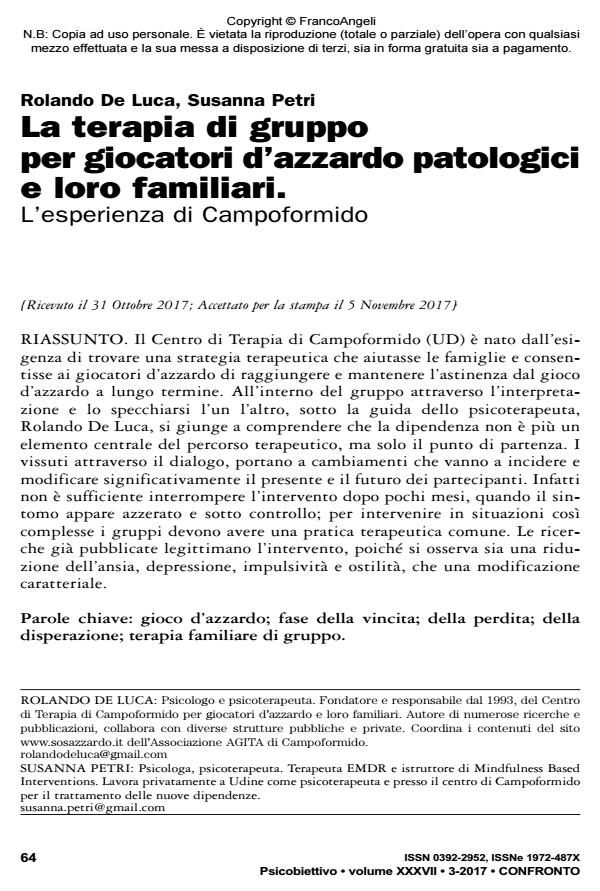Group therapy for pathological gamblers and their family members. Campoformido’s experience
Journal title PSICOBIETTIVO
Author/s Rolando De Luca, Susanna Petri
Publishing Year 2017 Issue 2017/3
Language Italian Pages 29 P. 64-92 File size 167 KB
DOI 10.3280/PSOB2017-003004
DOI is like a bar code for intellectual property: to have more infomation
click here
Below, you can see the article first page
If you want to buy this article in PDF format, you can do it, following the instructions to buy download credits

FrancoAngeli is member of Publishers International Linking Association, Inc (PILA), a not-for-profit association which run the CrossRef service enabling links to and from online scholarly content.
The Campoformido Therapy Center (UD) was born out of the need to find a therapeutic strategy that would not only provide support to families but also to allow gamblers to reach and maintain abstinence from long-term gambling. Within the group, through interpretation and mirroring each other and under the guidance of the psychotherapist Rolando De Luca, it is possible to reach the understanding that addiction is no longer a central element of the therapeutic path, but only the point of departure. The experiences shared through dialogue leads to changes that significantly affect and modify the present and the future of the participants. In fact, it is not sufficient to interrupt the intervention after a few months when the symptom appears cleared and under control. In order to intervene in such complex situations, the group members need to have a common therapeutic practice. Existing researches legitimize intervention as it reduces anxiety, depression, impulsivity, and hostility, as well as a change in character.
Keywords: Gambling; Winning Phase; Loss; Desperation; Family Group Therapy.
Rolando De Luca, Susanna Petri, La terapia di gruppo per giocatori d’azzardo patologici e loro familiari. L’esperienza di Campoformido in "PSICOBIETTIVO" 3/2017, pp 64-92, DOI: 10.3280/PSOB2017-003004